Hyundai Santa Fe vs Vauxhall Vivaro – Performance, range & efficiency compared
Everyday use, family trips or long-distance drives – here’s where the differences show.
Discover whether Hyundai Santa Fe or Vauxhall Vivaro fits your lifestyle better.
Here’s where it gets real: The technical differences in detail
Costs and Efficiency: When it comes to price and running costs, the biggest differences usually appear. This is often where you see which car fits your budget better in the long run.
Vauxhall Vivaro has a significantly advantage in terms of price – it starts at 33200 £, while the Hyundai Santa Fe costs 51200 £. That’s a price difference of around 18013 £.
Fuel consumption also shows a difference: the Hyundai Santa Fe manages with 1.70 L and is therefore convincingly more efficient than the Vauxhall Vivaro with 6.20 L. The difference is about 4.50 L per 100 km.
As for range, the Vauxhall Vivaro performs significantly better – achieving up to 352 km, about 298 km more than the Hyundai Santa Fe.
Engine and Performance: Power, torque and acceleration say a lot about how a car feels on the road. This is where you see which model delivers more driving dynamics.
When it comes to engine power, the Hyundai Santa Fe has a evident edge – offering 253 HP compared to 180 HP. That’s roughly 73 HP more horsepower.
In acceleration from 0 to 100 km/h, the Hyundai Santa Fe is slightly quicker – completing the sprint in 9 s, while the Vauxhall Vivaro takes 10.50 s. That’s about 1.50 s faster.
In terms of top speed, the Hyundai Santa Fe performs minimal better – reaching 196 km/h, while the Vauxhall Vivaro tops out at 185 km/h. The difference is around 11 km/h.
There’s also a difference in torque: the Vauxhall Vivaro pulls hardly perceptible stronger with 400 Nm compared to 380 Nm. That’s about 20 Nm difference.
Space and Everyday Use: Cabin size, boot volume and payload all play a role in everyday practicality. Here, comfort and flexibility make the difference.
Seats: Vauxhall Vivaro offers distinct more seating capacity – 9 vs 7.
In curb weight, the Vauxhall Vivaro is slightly lighter – 1722 kg compared to 1920 kg. The difference is around 198 kg.
In maximum load capacity, the Vauxhall Vivaro performs decisively better – up to 6100 L, which is about 4068 L more than the Hyundai Santa Fe.
When it comes to payload, Vauxhall Vivaro convincingly takes the win – 1226 kg compared to 665 kg. That’s a difference of about 561 kg.
Our conclusion: The Hyundai Santa Fe proves to be shows small but notable strengths and thus becomes our DriveDuel Champion!
Overall, Hyundai Santa Fe is the better all-rounder in this comparison.
Hyundai Santa Fe
The Hyundai Santa Fe offers a refined blend of style and functionality, making it a strong contender in the SUV market. Its modern interior, combined with advanced technology and comfort features, creates an inviting and practical driving environment. With its sleek design and robust performance, the Santa Fe is well-suited for both urban commutes and family adventures.
details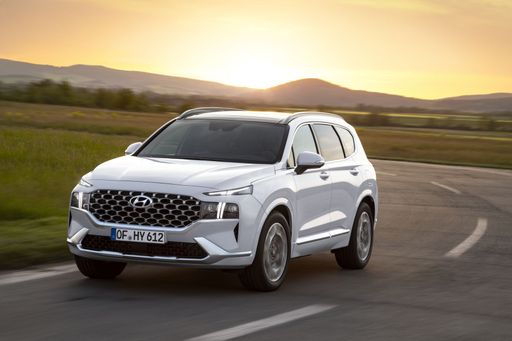 @ hyundai.news
@ hyundai.news
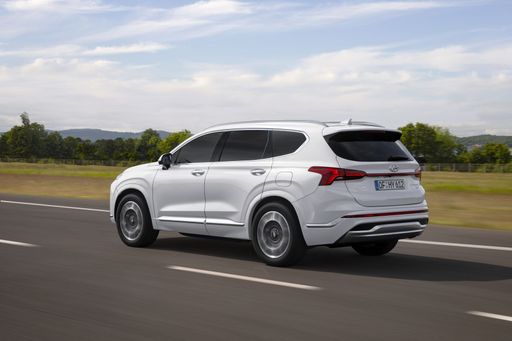 @ hyundai.news
@ hyundai.news
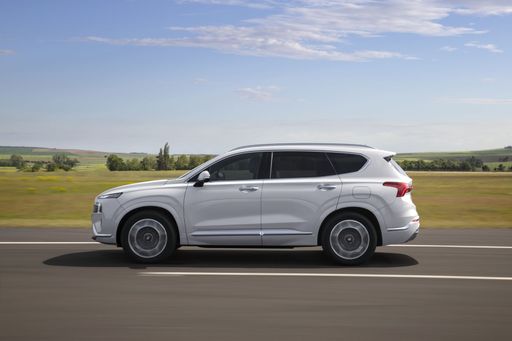 @ hyundai.news
@ hyundai.news
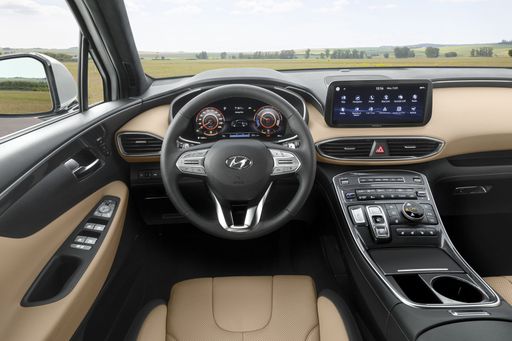 @ hyundai.news
@ hyundai.news
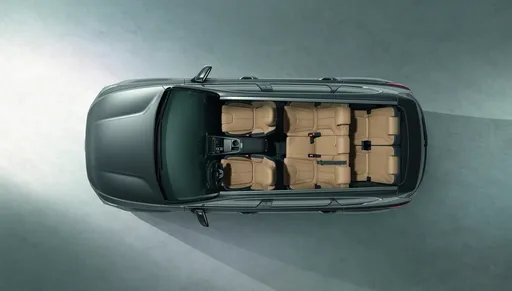 @ hyundai.news
@ hyundai.news
Vauxhall Vivaro
The Opel Vivaro is a versatile van that excels in both practicality and comfort, making it a popular choice for businesses and families alike. Its sleek design is complemented by a spacious interior, providing ample room for passengers or cargo. With a focus on durability and performance, this vehicle is well-suited for long journeys and demanding workloads.
details

|
|
|
|
|
Costs and Consumption |
|
|---|---|
|
Price
51200 - 58400 £
|
Price
33200 - 52500 £
|
|
Consumption L/100km
1.7 - 7.1 L
|
Consumption L/100km
6.2 - 7 L
|
|
Consumption kWh/100km
-
|
Consumption kWh/100km
23.6 - 24 kWh
|
|
Electric Range
54 km
|
Electric Range
221 - 352 km
|
|
Battery Capacity
-
|
Battery Capacity
-
|
|
co2
38 - 160 g/km
|
co2
0 - 184 g/km
|
|
Fuel tank capacity
47 - 67 L
|
Fuel tank capacity
69 L
|
Dimensions and Body |
|
|---|---|
|
Body Type
SUV
|
Body Type
Cargo Van, Bus
|
|
Seats
5 - 7
|
Seats
3 - 9
|
|
Doors
5
|
Doors
4
|
|
Curb weight
1920 - 2165 kg
|
Curb weight
1722 - 2260 kg
|
|
Trunk capacity
621 - 711 L
|
Trunk capacity
-
|
|
Length
4830 mm
|
Length
4980 - 5331 mm
|
|
Width
1900 mm
|
Width
1920 mm
|
|
Height
1720 mm
|
Height
1890 - 1935 mm
|
|
Max trunk capacity
1942 - 2032 L
|
Max trunk capacity
3200 - 6100 L
|
|
Payload
560 - 665 kg
|
Payload
840 - 1226 kg
|
Engine and Performance |
|
|---|---|
|
Engine Type
Plugin Hybrid, Full Hybrid
|
Engine Type
Electric, Diesel
|
|
Transmission
Automatic
|
Transmission
Automatic, Manuel
|
|
Transmission Detail
Automatic Gearbox
|
Transmission Detail
Reduction Gearbox, Manual Gearbox, Automatic Gearbox
|
|
Drive Type
All-Wheel Drive, Front-Wheel Drive
|
Drive Type
Front-Wheel Drive
|
|
Power HP
239 - 253 HP
|
Power HP
120 - 180 HP
|
|
Acceleration 0-100km/h
9 - 9.3 s
|
Acceleration 0-100km/h
10.5 - 14.3 s
|
|
Max Speed
180 - 196 km/h
|
Max Speed
130 - 185 km/h
|
|
Torque
367 - 380 Nm
|
Torque
260 - 400 Nm
|
|
Number of Cylinders
4
|
Number of Cylinders
4
|
|
Power kW
176 - 186 kW
|
Power kW
88 - 132 kW
|
|
Engine capacity
1598 cm3
|
Engine capacity
1499 - 2184 cm3
|
General |
|
|---|---|
|
Model Year
2024 - 2025
|
Model Year
2024 - 2025
|
|
CO2 Efficiency Class
B, E, F
|
CO2 Efficiency Class
A, F, G
|
|
Brand
Hyundai
|
Brand
Vauxhall
|
What drivetrain options does the Hyundai Santa Fe have?
Available configurations include All-Wheel Drive or Front-Wheel Drive.
The prices and data displayed are estimates based on German list prices and may vary by country. This information is not legally binding.
